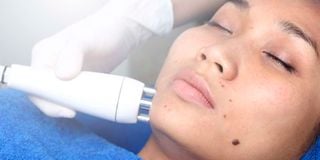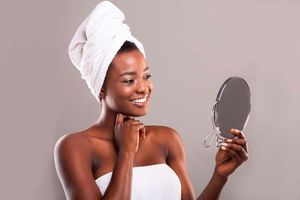How to rid yourself of blackheads at home

Available treatment options include extractions, steaming, chemical peels, and light therapy.
What you need to know:
- While there are some products that you can use for blackhead treatment, it is best to consult a medical professional before using chemical-laden creams and other harsh chemicals on your face.
- It is best not to press anything on your skin as this can lead to injury and scarring, especially if you are using sharp instruments to remove blackheads.
Scrubbing the face too much can lead to skin irritation, worsening your blackheads.
Blackheads are small bumps typically found around sebaceous filaments (oil glands). They occur when pores get clogged with dead skin cells and oil.
A blackhead is a mild type of acne that usually forms on the face, but it can also appear in other places such as underarms or on the chest.
Blackheads on your nose can make you feel self-conscious when you have to go out in public or talk with people face-to-face. The good news is that there are plenty of methods for getting rid of these pesky things.
Causes of blackheads
There is no known specific cause of blackheads. However, some factors can increase the likelihood of developing them.
- Hormonal changes during puberty, menstruation, or pregnancy. Teenagers experience hormonal changes that are likely to trigger sebum production, which causes an increase in blackheads.
- Excessive production of body oil. Sebum is produced by the skin to protect it from dryness. However, when an excessive amount of oil is secreted in your body, you will be more prone to blackheads.
- Genetics can also play a role in triggering blackheads on the face, which is why you may notice some family members also have a problem with blackheads.
Symptoms of Blackheads
If you have mild acne, this is more likely a sign of clogged pores due to excess sebum production. You may first notice small bumps or whiteheads on your face, which will turn to blackheads.
Prevention
Some day-to-day habits may help keep blackheads at bay.
- Get rid of makeup and oil from your skin as much as possible before going to bed. This will reduce the chances of getting clogged pores, which leads to blackheads.
- Wash your face with a gentle cleanser twice a day.
- Avoid using harsh chemicals on your face.
- Avoid touching your face because this can spread bacteria on them.
- Use sharp, clean razors when shaving.
Healthy ways to treat blackheads
Available treatment options include extractions, steaming, chemical peels, and light therapy, among others. Here is a list of some methods that you can try.
Warm Compress – This is known to be the best way to open your pores. To do this, soak a cotton ball in warm water and place it on the affected area for about five minutes before wiping it with the cotton.
Extraction Tools – They include squeezers, comedone extractors, tweezers with a flat end, among others. It is recommended to always sterilise your tools before use. Ensure to soften the area of extraction by applying a warm compress. It is advisable not to force the blackhead out.
Chemical Peels – Chemical peels are used to remove layers of dead skin cells on your face. Seek advice from a dermatologist or another medical professional before attempting to do a facial peel at home.
Over-the-counter Medications – Several over-the-counter medications can be used for blackhead treatment. In addition, look out for ingredients like salicylic acid and benzoyl peroxide, which are known to help fade dark spots on your skin as well as treat acne.




